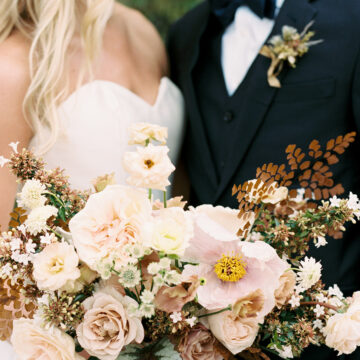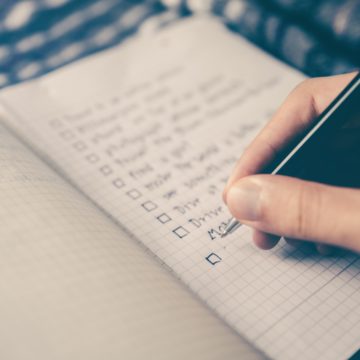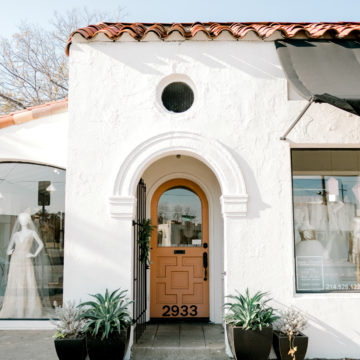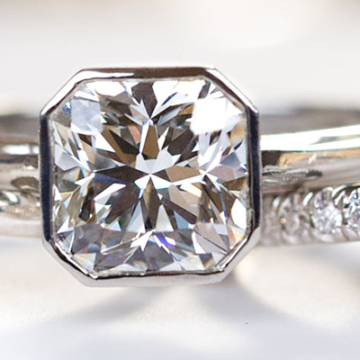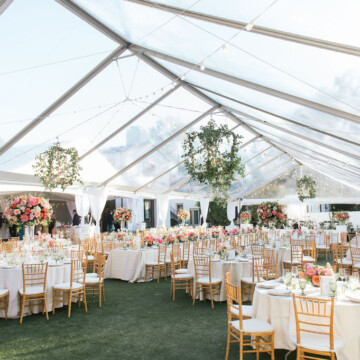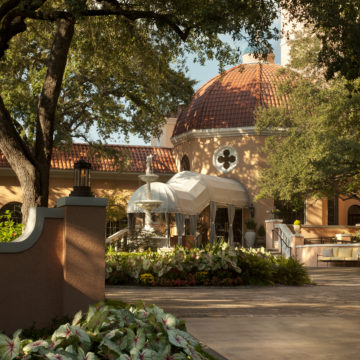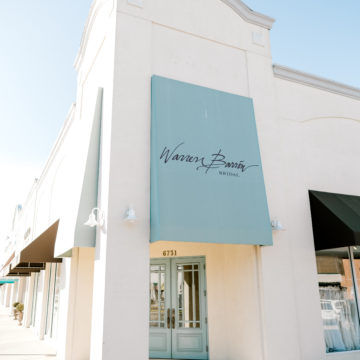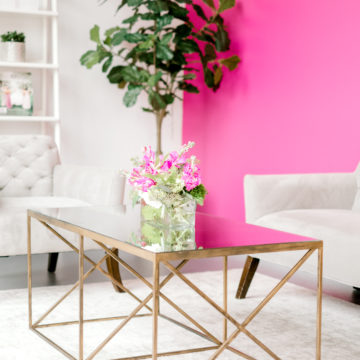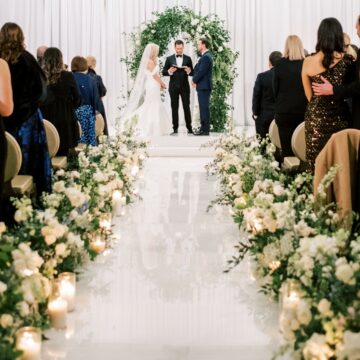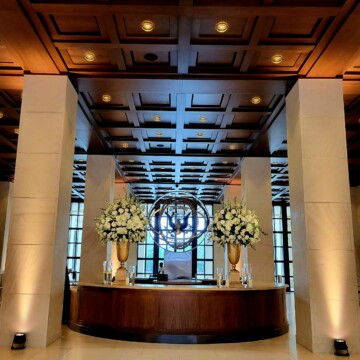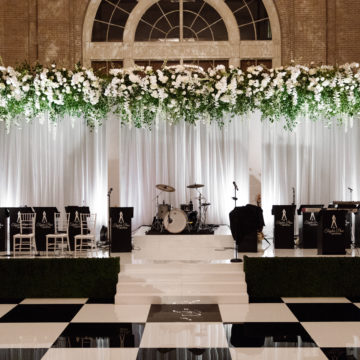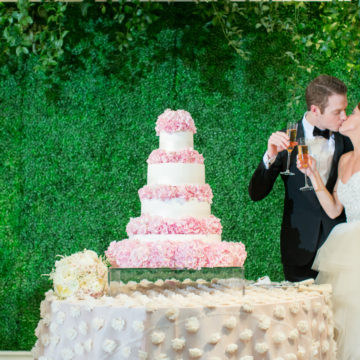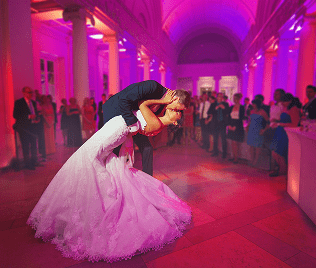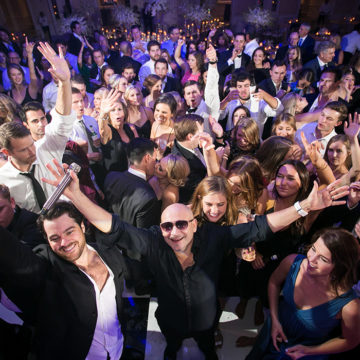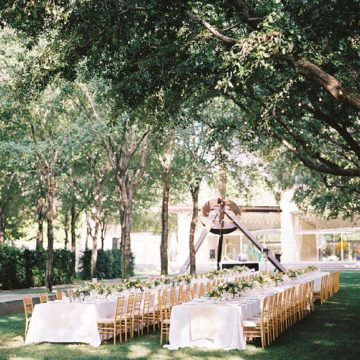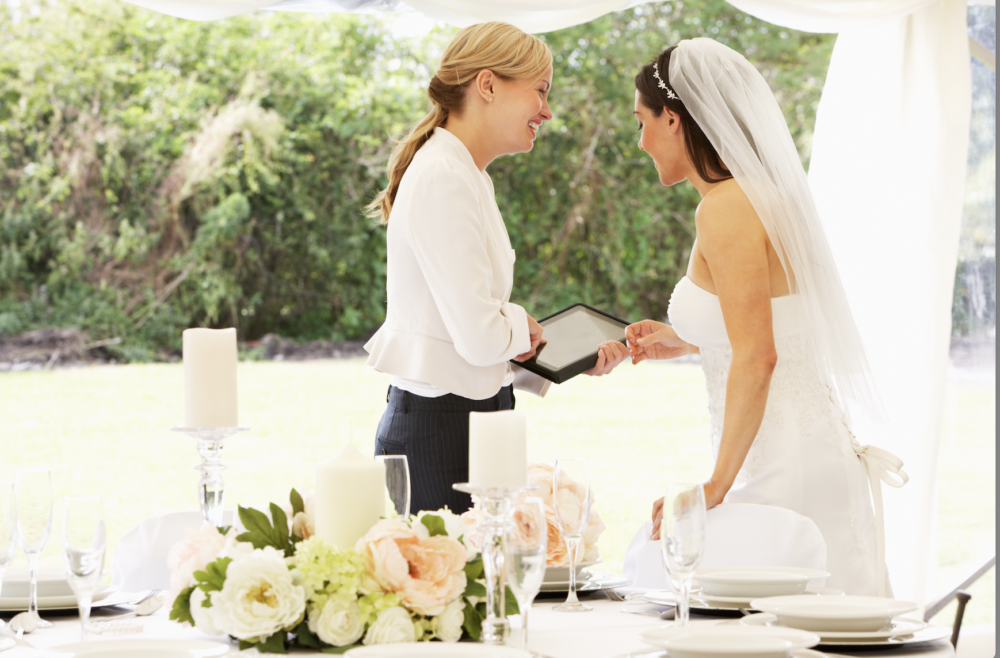
Time after time, our number-one tip for brides who are getting ready to begin the wedding-planning process is to hire someone to help them through it all. But did you know that there are varying levels of involvement a wedding planner can have—and different terms for each? We’re here to help you understand the difference so you can find the right fit for your own special day.
Wedding Coordinator
A wedding coordinator won’t be involved in the design or vendor selection process of your wedding; instead, their job usually begins about a month to eight weeks out from your big day, helping you wrap up loose ends and execute on the day of.
“A wedding coordinator is picking everything up in the end and tying it in a bow,” says Julian Leaver of Julian Leaver Events.
On the day of your wedding, your coordinator will be with you from start to finish, making sure everything runs smoothly and stays on schedule so you don’t have to.
“I consider a wedding coordinator as that last-minute hero that rides in to save the day,” says Robyne Swink, Southern Affairs Weddings & Events principal planner. “While they aren’t there to guide the client the entire way, they step in towards the last month or so to ensure that the clients have someone in their corner on the big day.”
You’re an ideal fit for a wedding coordinator if: You’re a bride who wants to do it (almost) all yourself. You have a good grasp on the vendors and design you want. You simply want to be able to turn everything over so you can enjoy your day.
Wedding Designer
Wedding design can come from one of several vendor categories. There are wedding planners that offer wedding-design services in addition to planning. There are also some florists that fall into the design category, as they go beyond merely arranging flowers to curate the entire look of your wedding.
“A wedding designer will design a blue print for the visual aspects of your day that will tell one uniformed story,” says Swink.
If you want help with the overarching theme or design of your wedding, you’ll simply have to ask your planner and floral candidates if this is part of the services they provide. Many wedding planners offer design services, but not all, and the same goes for florists. Don’t be afraid to ask questions to make sure you’re receiving the type of assistance you’re looking for.
You’re an ideal fit for a wedding designer if: You’re a bride that’s a bit lost in navigating your wedding design. “She knows somewhat what her aesthetic looks like, but needs it to be drawn out by a professional,” says Leaver.
Wedding Planner
A wedding planner sees your wedding through from start to finish. They are highly involved in the logistics of the planning process. Many come with a list of vendors and can make recommendations based on those they’ve worked with before and trust, taking some of the guesswork out of selecting vendors. A wedding planner can also be involved in the financial decisions. They can make sure you’re staying on budget and guide you through the best way to spend your money.
“In my eyes, a wedding planner is basically the fairy godmother of your wedding day,” says Swink. “A talented planner should be helping a client in selecting vendors and designing the wedding of their dreams, keeping the planning process organized, efficient, and seamless.”
One important thing to remember is that there are lots of options for wedding planners in Dallas. The key is finding someone whose personality and ideas are in line with your own, and with whom you and your fiancé can work well.
You’re an ideal fit for a wedding planner if: You’re more hands-off or don’t have the time or interest in controlling every single detail. You want someone experienced who can take the pressure and lengthy checklist off your shoulders and handle every detail like the pro that they are, allowing you to enjoy the process stress-free.
Click here to browse some of our favorite local planners, designers, and coordinators!

